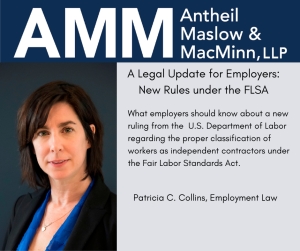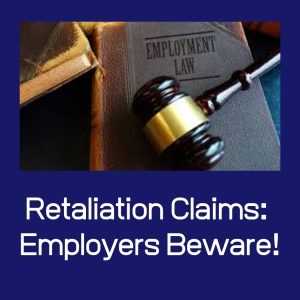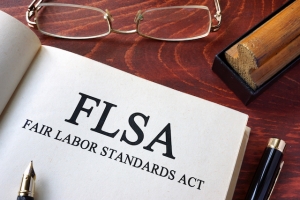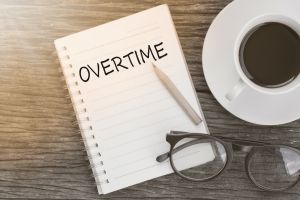The Department of Labor's New Independent Contractor Rule
Reprinted with permission from the February June 13th edition of The Legal Intelligencer. (c) 2024 ALM Media Properties. Further duplication without permission is prohibited.
On January 9, 2023, the United States Department of Labor issued a new final rule regarding the proper classification of workers as independent contractors under the Fair Labor Standards Act. While the rule is technically new, it is, in substance, a recitation of the applicable law regarding the proper classification of workers set forth by the Supreme Court.
Prior to recent rule making, caselaw guided the determination of whether a worker was an employee or independent contractor under the Fair Labor Standards Act (“FLSA”). In United States v. Silk, the United States Supreme Court outlined the factors relevant to the determination: degree of control, opportunities for profit or loss, investment in facilities, permanency of relations and skill required in the claimed independent operation. The Silk court noted that “no one factor is controlling.” Just about every court, federal or state, applies the same or similar standard to determine the issue under the FLSA or state statutes regarding minimum wage and overtime pay.
SUPREME COURT NARROWS THE APPLICATION OF THE FEDERAL ARBITRATION ACT
Reprinted with permission from the June 23rd edition of The Legal Intelligencer. (c) 2021 ALM Media Properties. Further duplication without permission is prohibited.
The United States Supreme Court narrowed the application of the Federal Arbitration Act (“FAA”) in its June 6, 2022 opinion in Southwest Airlines Co. v. Saxon, 596 U.S. ____ (2002). The case, along with the earlier case New Prime Inc. v. Oliveiri, 556 U.S. ____ (2019) , represents the narrowest narrowing of the Supreme Court’s broad holding in Epic Systems Corp. v. Lewis, 284 U.S. ____ (2018). In Southwest Airlines v. Saxon, the court answered the narrow question of whether an employee employed as a “ramp supervisor” fell within the Federal Arbitration Act’s exemption of “contracts of employment of seamen, railroad employees, or any other class of workers engaged in foreign or interstate commerce”, concluding that the workers did fall within the exemption. The case does not presage a trend towards narrowing the application of the Federal Arbitration Act, and instead demonstrates that the Court intends to encourage honoring arbitration agreements by insisting on a textual and precedential approach to the FAA.
Saxon was employed as a ramp supervisor at Southwest Airlines at Chicago Midway International Airport. At the beginning of her employment, she signed an employment agreement agreeing to arbitrate wage disputes individually. As a ramp supervisor, Saxon’s job was to train and supervise teams of ramp agents. Ramp agents are employees who physically load and unload baggage, airmail and freight. Occasionally, ramp supervisors assist ramp agents in loading and unloading cargo. Saxon filed a putative class action of ramp supervisors against Southwest, alleging violations of the Fair Labor Standards Act (“FLSA”). Southwest moved to dismiss, citing Saxon’s employment agreement which required arbitration pursuant to the FAA. Saxon argued that the ramp supervisors were exempt from the FAA pursuant to the exemption for “workers engaged in foreign or interstate commerce.” The United States District Court for the Northern District of Illinois dismissed the case, agreeing that the exemption did not apply. The United States Court of Appeals for the Seventh Circuit reversed, finding that the loading of cargo to be transported interstate is “itself commerce.” The Seventh Circuit’s holding conflicted with an earlier decision of the United States Court of Appeals of the Fifth Circuit. The Supreme Court granted certiorari and found that Saxon belong to a “class of workers engaged in foreign or interstate commerce”, and was exempt from arbitration.
A Tale of Two Statutes: What are Compensable “Hours Worked”?
A recent decision by the Pennsylvania Supreme Court underscores the fact that although an employer may be in compliance with the federal Fair Labor Standards Act (“FLSA”), it may at the same time be in violation of the Pennsylvania Minimum Wage Act (“PMWA”).
The case, In Re: Amazon.Com, Inc. et al. v. Amazon.com, Inc., Amazon.com.DEDC, LLC, and Integrity Staffing Solutions, Inc. (43 EAP 2019), involved a class action brought by two employees who worked at an Amazon warehouse in Pennsylvania and sought to be compensated for time spent at the premises waiting to undergo and undergoing mandatory security screening.
As discussed below, a federal district court had dismissed the employees’ claims under the FLSA and the PMWA, but the federal Sixth Circuit Court of Appeals certified the case to the Pennsylvania Supreme Court to address the questions as to whether the PMWA applied to the employees’ claims and whether there is a de minimus exception to the PMWA.
RETALIATION CLAIMS: EMPLOYERS BEWARE!
Most employers these days are aware of the many workplace claims an employee might bring, including allegations of discrimination on account of race, color, religion, sex, national origin, sexual orientation, pay, age, or disability. Among other claims are those brought under the Fair Labor Standards Act (minimum wage, overtime) and the Family Medical Leave Act.
Employers paradoxically seem less aware of a retaliation claim an employee may bring. Paradoxically, because as reported by the Equal Employment Opportunity Commission (“EEOC”-the federal agency responsible for enforcing laws prohibiting employment discrimination), retaliation claims constituted the highest percentage of all charges filed in its fiscal year 2019.
Moreover, as discussed below, retaliation claims, by which an employee can obtain the same remedies as discrimination claims, are often easier for an employee to prove.
A recent opinion by the United States Court of Appeals for the Third Circuit (covering Pennsylvania) illustrates what an employee must do to state a case for retaliation and how an employer might defend the action.
THE SIDE GIG AND THE FLSA: THE SIXTH CIRCUIT KEEPS UP WITH MODERN ECONOMIC REALITIES
A recent case from the United States Court of Appeals for the Sixth Circuit demonstrates the ongoing struggle to apply the Fair Labor Standards Act (“FLSA”) to the “side gigs” that have come to signify the modern employment market. In Acosta v. Off Duty Police Services, Inc., United States Court of Appeals for the Sixth Circuit, Nos. 17-5995/6071 (February 12, 2019), the Sixth Circuit held that security offers working for Off Duty Police Services (“ODPS”) as a side job were employees entitled to overtime pay under the FLSA.
ODPS workers were either sworn law enforcement officers who worked for law enforcement entities during the day, or unsworn workers with no background in law enforcement. All workers had the same duties, but sworn officers earned a higher hourly rate. Duties included “sitting in a car with the lights flashing or directing traffic around a construction zone.” They were free to accept or reject assignments, but would be punished by withholding future assignments if they did so. When they accepted an assignment, ODPS instructed the workers where to report, when to show up, and who to report to upon arrival. ODPS provided some equipment, but workers did have to use some of their own equipment. Workers followed customer instructions while on assignment, and only occasionally received supervision from ODPS. ODPS paid workers for their hours upon submission of an invoice. Workers did not have specialized skills, as sworn officers and unsworn workers had the same duties.
ODPS treated the workers as “independent contractors.” As the facts set forth in the Sixth Circuit opinion demonstrate, the factors relevant to determining whether a worker is an independent contractor or employee do not provide a clear answer. The United States District Court for the Western District of Kentucky broke the tie this way: the court held that “nonsworn workers” were employees, but that the sworn officers were independent contractors because they “were not economically dependent on ODPS and instead used ODPS to supplement their incomes.”
The Sixth Circuit disagreed, noting that the FLSA is a broadly remedial and humanitarian statute, designed to improve labor conditions. The Sixth Circuit applied the “economic reality” test to determine that the sworn offers were also employees and not independent contractors, and to uphold the finding that unsworn workers were employees. Specifically, the Court noted that the officers provided services that represented an integral part of the business, and that the work required no specialized skills, that the officers made only limited investment in equipment, and that the workers had little opportunity for profit or loss. The Court noted that the facts did not “break cleanly in favor of employee or independent contractor status” regarding the right to control the work for the sworn officers.
Supreme Court Finds ‘Service Advisors’ Exempt from Overtime Rules
Reprinted with permission from the April 18th, 2018 issue of The Legal Intelligencer. (c) 2018 ALM Media Properties. Further duplication without permission is prohibited.
The Supreme Court’s decision in Encino Motorcars, LLC v. Navarro interprets a very specific exemption to the overtime rules imposed by the Fair Labor Standards Act, 29 U.S.C. 201, et seq. (“FLSA”), but the Court’s language and reasoning have game-changing ramifications. The Court’s rejection of the principle that courts should narrowly construe exemptions to the FLSA turns decades of FLSA caselaw on its head.
The facts of Encino Motorcars are deceptively narrow. Employees classified as service advisors for a car dealership challenged the car dealership’s classification of the service advisors as exempt from the FLSA. The FLSA requires that employers must pay overtime to employees who work more than 40 hours in a week. 29 U.S.C. § 207(a). The dealership claimed the exemption under a statutory exemption that applies to car dealerships. 29 U.S.C. § 213. Specifically, the section in question exempts from overtime pay requirements:
Any salesman, partsman, or mechanic primarily engaged in selling or servicing automobiles, trucks, or farm implements, if he is employed by a nonmanufacturing establishment primarily engaged in the business of selling such vehicles or implements to ultimate purchasers.
Caution: Intern or Employee?
Under the federal Fair Labor Standards Act (FLSA), employers in “for-profit” enterprises are required to pay compensation to their employees, including a designated minimum wage and overtime pay.
An issue often faced by employers is whether an intern or student is actually an employee entitled to compensation, or whether the intern or student may work without receiving pay.
On January 5, 2018, the United States Department of Labor (“DOL”), which enforces the FLSA, announced in Field Assistance Bulletin No. 2018-2, that it was now going to follow the decision of several appellate courts in promulgating a new test for determining if an intern is actually an employee entitled to compensation.
Specifically, the DOL, announced that it would use the “primary beneficiary test” to determine the status of the would-be intern. The test is intended to be flexible and allows courts or the DOL to review the “economic reality” of the relationship to determine which party, would-be intern or employer, is the primary beneficiary of the relationship.
As part of the “primary beneficiary test”, the DOL adopted seven factors used by the courts:
1. The extent to which the intern and the employer clearly understand that there is no expectation of compensation. Any promise of compensation, express or implied, suggests that the intern is an employee—and vice versa.
2. The extent to which the internship provides training that would be similar to that which would be given in an educational environment, including the clinical and other hands-on training provided by educational institutions.
3. The extent to which the internship is tied to the intern’s formal education program by integrated coursework or the receipt of academic credit.
4. The extent to which the internship accommodates the intern’s academic commitments by corresponding to the academic calendar.
5. The extent to which the internship’s duration is limited to the period in which the internship provides the intern with beneficial learning.
6. The extent to which the intern’s work complements, rather than displaces, the work of paid employees while providing significant educational benefits to the intern.
7. The extent to which the intern and the employer understand that the internship is conducted without entitlement to a paid job at the conclusion of the internship.
The DOL stated that no one factor is determinative of the issue and that the ultimate classification of intern or employee “under the FLSA necessarily depends on the unique circumstances of each case”.
With respect to volunteers for governmental services and non-profits, the Wage and Hour Division of the Department of Labor set forth the following in Fact Sheet No. 71:
“The FLSA exempts certain people who volunteer to perform services for a state or local government agency or who volunteer for humanitarian purposes for non-profit food banks. WHD also recognizes an exception for individuals who volunteer their time, freely and without anticipation of compensation, for religious, charitable, civic, or humanitarian purposes to non-profit organizations. Unpaid internships for public sector and non-profit charitable organizations, where the intern volunteers without expectation of compensation, are generally permissible.”
Employers who use interns should carefully review whether they are complying with the law. AMM’s Employment Law attorneys can assist you with this and all compliance issues. To learn more about Michael Klimpl, visit ammlaw.com.
Attention Employers: Working Families Flexibility Act Contemplates Changes to FLSA Overtime Rules
By Patricia Collins, Esquire
On May 2, 2017, the House passed the Working Families Flexibility Act. The purpose of the Act is to give employees flexibility in how they choose to be paid for overtime: in wages or in compensatory time off. The Act crystallizes a tension I see often in my representation of employers.
Presently, the Fair Labor Standards Act (“FLSA”) requires employers to pay nonexempt employees overtime compensation for work hours in excess of 40 in a workweek. Employers cannot compensate employees for those overtime hours in compensatory time off (“comp time”). Such a policy violates the FLSA, exposing the employer to liability for the unpaid overtime hours as well as penalties and attorney’s fees.
The FLSA prohibition against payment in comp time is intended to protect employees from abusive overtime demands by employers. The statutory obligation to pay additional wages for hours over forty in a workweek, so the argument goes, forces the employer to base the decision to require overtime hours on business and financial considerations. The FLSA’s ban on comp time legislates a policy determination that offering comp time will not protect employees from abusive demands by employers.
Republicans this week argued otherwise. They argue that permitting employees to take comp time rather than payment for overtime work gives employees flexibility. Democrats who opposed the bill countered that the Act’s provision allowing employers the final say does not adequately protect employees.
Practically, the Act sits at the tipping point of many competing considerations: employers want to establish policies that comply with the law, protect the business, and benefit employees. Employees want flexibility, but they also need to be paid for their work. The reality is that banked comp time can be a liability for employers because there are jobs for which attendance is extremely important, and unscheduled or unpredictable time is off is sometimes expensive or interferes with the progress of work. Further, employees might not be free to use that comp time in the manner they would like if it interferes with the employer’s business. Most employers offer paid time off in a set amount, in order to create predictability as to an employee’s attendance. While this proposed rule might create flexibility and reduce overtime costs, I do wonder whether it is really a savings in the long run.
It will be interesting to see how the Senate balances these concerns, and whether employers will create policies that allow comp time. The bill now goes to the Senate – no word yet on whether they will vote on it. Stay tuned!

























